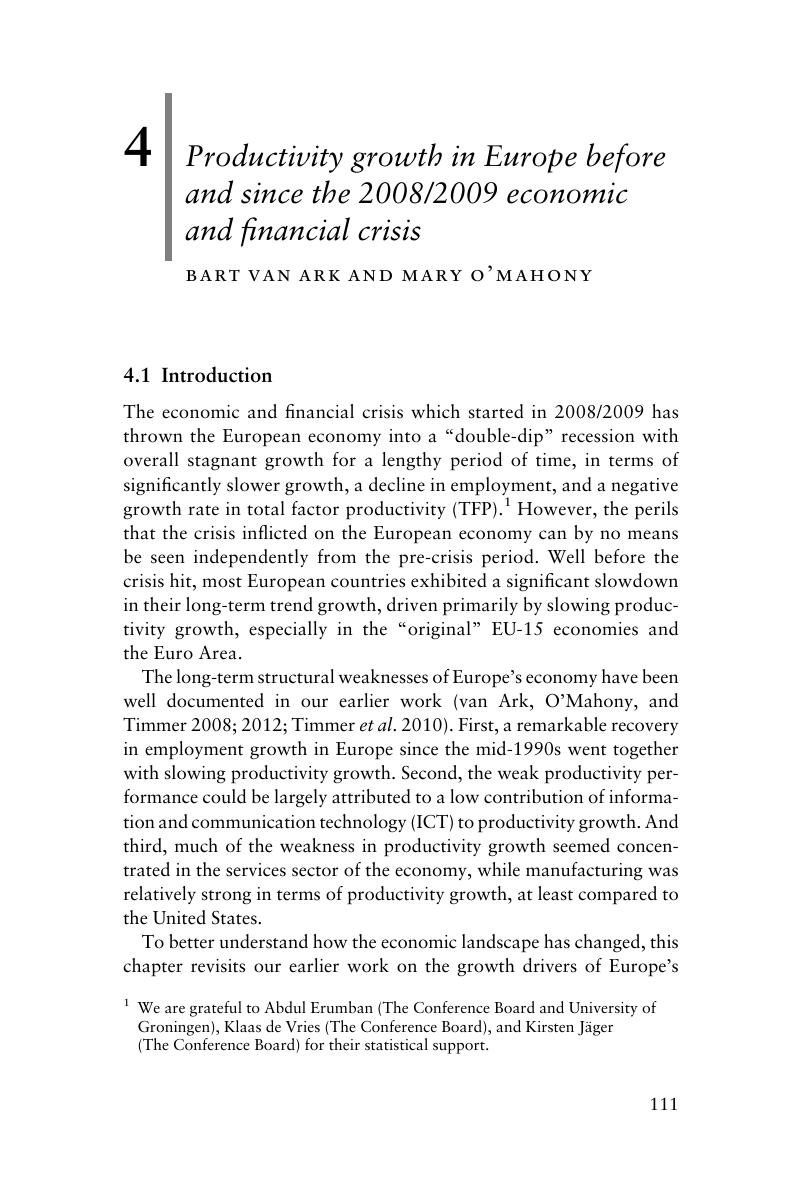Book contents
- The World Economy
- The World Economy
- Copyright page
- Contents
- Figures
- Tables
- Contributors
- 1 The new world order
- 2 US economic growth – retrospect and prospect: lessons from a prototype industry-level production account for the US, 1947–2012
- 3 The structural causes of Japan’s Lost Decades
- 4 Productivity growth in Europe before and since the 2008/2009 economic and financial crisis
- 5 LA-KLEMS: economic growth and productivity in Latin America
- 6 On China’s strategic move for a new stage of development – a productivity perspective
- 7 Productivity growth in India under different policy regimes
- 8 Is mining fuelling long-run growth in Russia? Industry productivity growth trends in 1995–2012
- 9 Intangibles, ICT and industry productivity growth: evidence from the EU
- 10 Do intangibles contribute to productivity growth in East Asian countries? Evidence from Japan and Korea
- 11 BEA/BLS industry-level production account for the US: integrated sources of growth, intangible capital, and the US recovery
- 12 Measuring human capital: country experiences and international initiatives
- 13 A half century of Trans-Pacific competition: price level indices and productivity gaps for Japanese and US industries, 1955–2012
- 14 Searching for convergence and its causes – an industry perspective
- 15 The rise of global manufacturing value chains: a new perspective based on the World Input–Output Database
- Index
- References
4 - Productivity growth in Europe before and since the 2008/2009 economic and financial crisis
Published online by Cambridge University Press: 07 January 2017
- The World Economy
- The World Economy
- Copyright page
- Contents
- Figures
- Tables
- Contributors
- 1 The new world order
- 2 US economic growth – retrospect and prospect: lessons from a prototype industry-level production account for the US, 1947–2012
- 3 The structural causes of Japan’s Lost Decades
- 4 Productivity growth in Europe before and since the 2008/2009 economic and financial crisis
- 5 LA-KLEMS: economic growth and productivity in Latin America
- 6 On China’s strategic move for a new stage of development – a productivity perspective
- 7 Productivity growth in India under different policy regimes
- 8 Is mining fuelling long-run growth in Russia? Industry productivity growth trends in 1995–2012
- 9 Intangibles, ICT and industry productivity growth: evidence from the EU
- 10 Do intangibles contribute to productivity growth in East Asian countries? Evidence from Japan and Korea
- 11 BEA/BLS industry-level production account for the US: integrated sources of growth, intangible capital, and the US recovery
- 12 Measuring human capital: country experiences and international initiatives
- 13 A half century of Trans-Pacific competition: price level indices and productivity gaps for Japanese and US industries, 1955–2012
- 14 Searching for convergence and its causes – an industry perspective
- 15 The rise of global manufacturing value chains: a new perspective based on the World Input–Output Database
- Index
- References
Summary

- Type
- Chapter
- Information
- The World EconomyGrowth or Stagnation?, pp. 111 - 152Publisher: Cambridge University PressPrint publication year: 2016
References
- 8
- Cited by



